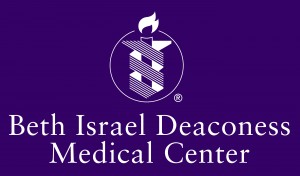Weighing New Prescription for Doctor/Patient Communication
Posted by Noelle Swan Every day countless people see their primary care physician for sick visits, routine physicals, and to follow up on chronic conditions. On average, patients spend 8-15 minutes face-to-face with their doctors. Doctors have checklists that they need to push through in addition to any concerns that the patients may have. Appointments fly by and patients often feel they have just spun out of a revolving door.
Every day countless people see their primary care physician for sick visits, routine physicals, and to follow up on chronic conditions. On average, patients spend 8-15 minutes face-to-face with their doctors. Doctors have checklists that they need to push through in addition to any concerns that the patients may have. Appointments fly by and patients often feel they have just spun out of a revolving door.
What if after appointments patients could go online and review the their primary care physicians’ notes? What if they could share them with their family and caregivers?
Researchers at the Beth Israel Deaconess Medical Center (BIDMC) in Boston have done just that. For one year, patients were granted access to the doctors’ note section of the hospital’s existing online patient portal—a secure website where patients can access lab results and medication lists. Study authors released a preliminary report of the trial today in the Annals of Internal Medicine detailing physicians’ and patients’ expectations for the program.
“Knowledge is power. If patients understand more and have more knowledge about what the doctor is thinking, they’ll be more empowered to make better decisions,” said Jan Walker, RN, MBA, member of the research team at BIDMC and Harvard Medical School and the study’s lead author.
By law, patients are entitled to these notes and can obtain them from hospital records offices by jumping through a few bureaucratic hoops and possibly paying a fee. Unsurprisingly, few seek hard copies of their records.
Participating patients at BIDMC, as well as at participating hospitals in rural Pennsylvania and suburban Washington overwhelmingly embraced the idea with 90% of patients reporting that the notes would put them more in control of their health. Half of them said they thought they would take their medication better if they understood more about why they were taking it.
Michael Meltsner, a 74-year-old patient of the study’s senior author, Tom L. Delbanco, M.D. said in an interview that he enthusiastically agreed to participate in the study. “It’s not as if we didn’t have an open relationship before,” he said of his interactions with Delbanco. He added that the notes not only reminded him about what was said during his appointment but prompted additional follow up questions. “It’s as if I was being presented with a potential checklist so I could write him back in an email,” he said.
Walker hopes that the notes can improve communication between family members and caregivers as well. “If you’re an elderly patient and your adult children are in another city, this is a way to share information about your health,” she said.
As a licensed marriage and family therapist, Meltsner said that he sees tremendous potential in this possibility as well. “Healthcare is often a family event as well as an individual event. An appointment doesn’t involve the family.” As a husband and father, he found that sharing his own notes with his family prompted additional questions for his doctor and ultimately a better understanding of his health.
Most patients and many doctors see this added layer of communication between doctor and patient as a step forward. However, some doctors expressed reservations and worried that harmful effects would outweigh any benefits.
Doctors participating in the survey process of the study but not in the actual trial expressed concerns around confusing, upsetting, and frightening patients. Some said that they would not be comfortable taking candid notes if they knew that their patients could read them.
Meltsner brushed away these concerns and said that he is prepared to read whatever his doctor writes about him. “All too often, the professional has an image of the patient as someone who is going to dissolve if they’re told something difficult,” he said.
Instead, he says that notes come in especially handy in such situations. “When something tense or difficult comes up in a doctor appointment the patient often has selective amnesia, having something to refer back to is extremely valuable.”
Walker pointed to anecdotal evidence that difficult news delivered in written form can be a vital reinforcement. She said that one patient reported that she had been able to ignore her doctors annual urging to lose weight, but when she saw the word “obese” in black and white, something hit home. Many patients tune out their doctors recommendations to lose weight, quit smoking, lower their cholesterol. Perhaps doctors’ notes hold the key to put the physical symptoms into the context of habitual choices.
An additional concern raised by many non-participating doctors was how to address issues of mental health and substance abuse.
“When you talk to mental health professionals, the waters part,” said Delbanco. “Half think the idea is nuts, the other half like it.” He added that his personal philosophy is, if a doctor thinks his patient has mental health or substance abuse issues, the patient should be the first person to know.
Delbanco does not deny that some people could become upset by what they read. “Think about it like a new medicine. We think it’s going to be good for the vast number of people and it’s going to hurt a few people. We also have to learn how and when to use it and so do patients.”
Related posts:
- Is the Current Healthcare System Driving the Nation to Economic Collapse?
- Jurors Hear More of Jackson Doctor Interview
- MA Company Helps Make Patient Records More Secure; Lands Big Contract Overseas
- Boston-Based Software Company’s Telehealth Technology Will Help Make Care More Available to Veterans
- Lawmakers to Hear from Community Hospital Officials This Week on Impact of Closing Vermont State Hospital
Short URL: http://www.newenglandpost.com/?p=8462





